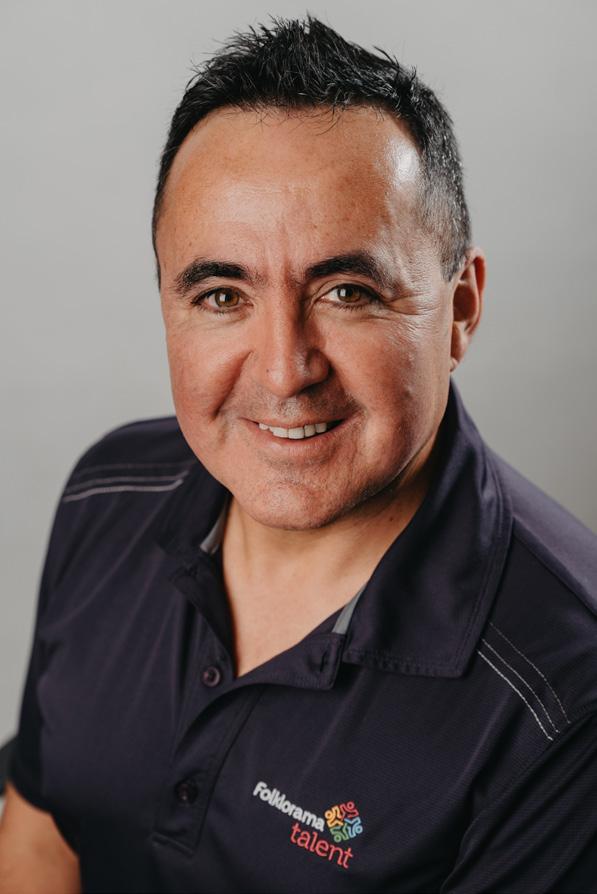
11 minute read
Christian Hidalgo-Mazzei
Interview by Bethy Sanchez
Christian Hidalgo-Mazzei, Presidente de CIOFF Canadá Director y Productor Artístico de Folklorama en Winnipeg, Canadá.
Advertisement
Perfil en Destaque:
Christian Hidalgo-Mazzei
Christian Hidalgo-Mazzei es un reconocido miembro de nuestra comunidad y hoy nos comparte su trayectoria como inmigrante y como un apreciador entusiasta de las actividades multiculturales en Winnipeg; Así como nos contara los nuevos proyectos en la nueva división de Artes Etno culturales del Folklorama en su cargo como director, donde ha estado presente en los últimos 31 años con la organización. Christian además participa activamente en al ámbito internacional, actualmente fue reelecto como presidente de la Sección Nacional de CIOFF Canadá por tercer periodo consecutivo. CIOFF es la sigla del Consejo Internacional de Organizaciones de Festivales de Folklore y de las Artes Tradicionales, con sede en Paris, donde es miembro del Consejo Directivo representando a Norteamérica.
Christian Hidalgo-Mazzei is a recognized member of our community and today he shares with us his trajectory as an immigrant and as an enthusiastic appreciator of multicultural activities in Winnipeg; as well as telling us about the new projects in the new Ethno Cultural Arts division of Folklorama in his position as director, where he has been present for the last 31 years with the organization. Christian also participates actively in the international arena, currently he was re-elected as president of the National Section of CIOFF Canada for the third consecutive term. CIOFF is the acronym for the International Council of Organizations of Folklore Festivals and Folk Art Festivals, based in Paris, where he is a member of the Board of Directors representing North America.
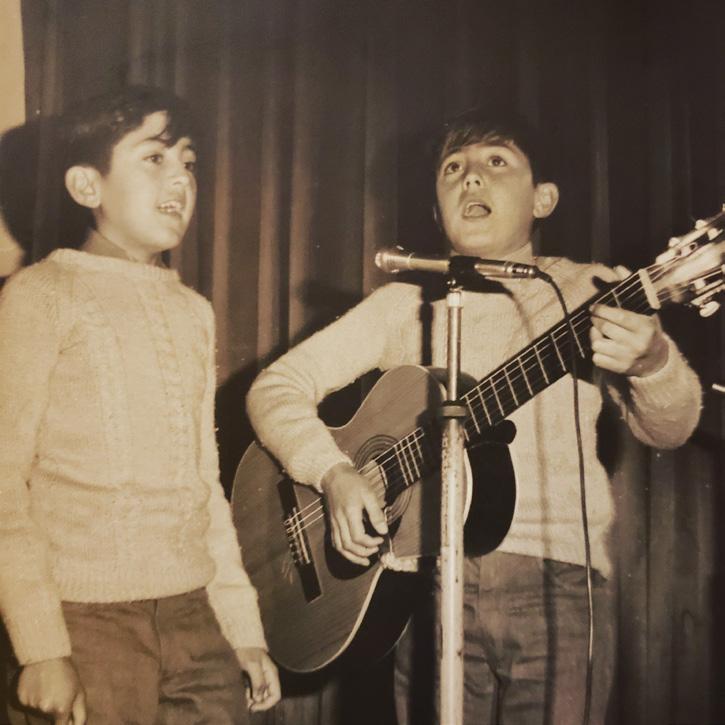
Christian y su hermano gemelo Carlos. En el año 1976, meses antes de emprender viaje a Canadá. En un recital escolar en Villa Alemana, Chile Christian and his twin brother Carlos. In 1976, months before leaving for Canada. At a school recital in Villa Alemana, Chile
1. ¿A qué edad llegaste a Canadá? Cuéntanos como fue el inicio como inmigrantes para tu familia. Llegue con mi familia el 1 de febrero del año 1977, a los 12 años. Mira, el principio fue complejo, no solo por el clima, llegamos en pleno invierno, sino que no existían en ese entonces muchas redes de apoyo al inmigrante. Mi familia la compone mis padres, mi hermano gemelo y dos hermanos menores.
1. At what age did you arrive in Canada? Tell us about your family’s start as an immigrant. I arrived with my family on February 1, 1977, when I was 12 years old. Look, the beginning was complex, not only because of the weather, we arrived in the middle of winter, but also because at that time there were not many immigrant support networks. My family consists of my parents, my twin brother and two younger brothers.
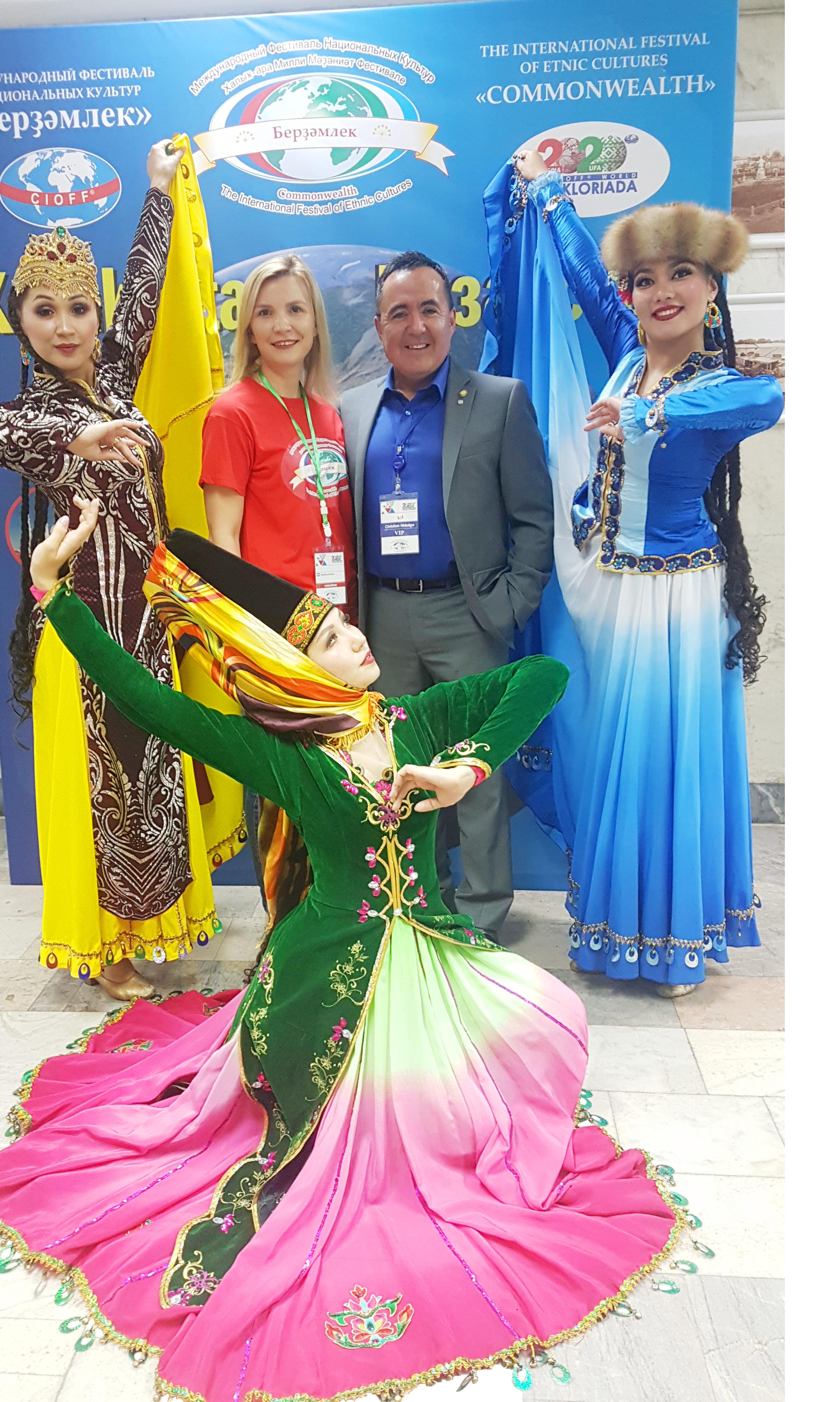
2. ¿Qué te motivó a involucrarte en el Folklorama por primera vez? Háblanos de tu trayectoria en el folklorama. Después del high School, egrese de la Universidad de Winnipeg con doble mención en Geografía y Ciencias Políticas. En ese tiempo ya participaba en ámbito artístico con mi hermano gemelo participando en varios eventos relacionados con Folklorama. Creo, que la primera vez participamos en el Pabellón original de Chile por el año 1979. Más tarde por nuestras raíces italianas participamos un par de años el Pabellón Roma Italia. Luego, conocí gente que trabajaba en Folklorama, empecé haciendo trabajo voluntario, y luego se abrió una vacante y me contrataron de planta el año 1990. Y todavía sigo disfrutando de lo que hago 31 años después.
2. What motivated you to get involved in Folklorama for the first time? Tell us about your background in Folklorama. After high school, I graduated from the University of Winnipeg with a double major in Geography and Political Science. At that time, I was already involved in the arts with my twin brother participating in various Folklorama related events. I think the first time we participated in the original Chile Pavilion in 1979. Later, because of our Italian roots, we participated for a couple of years in the Rome Italy Pavilion. Then, I met people who worked in Folklorama, I started doing volunteer work, and then a vacancy opened up and I was hired as a staff member in 1990. And I’m still enjoying what I do 31 years later.
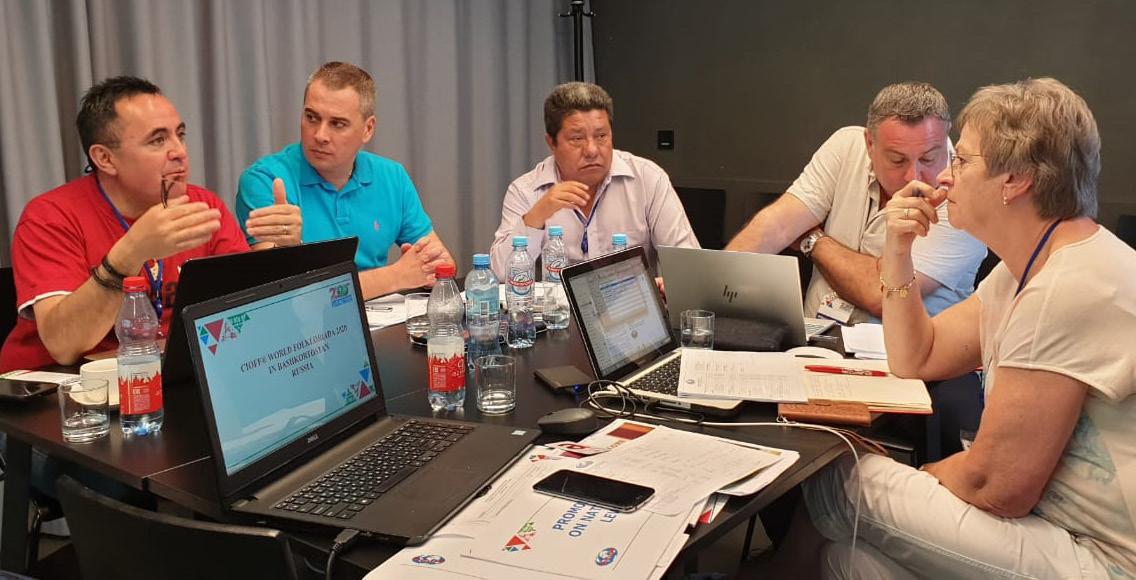
3. Para los que nos encanta preservar nuestras raíces culturales ¿Cuál es tu consejo para hacer conocer la cultura de nuestros países? Para mi el tema va por la identidad cultural de las personas. Creo, que cada individuo tiene el derecho de rescatar y preservar su cultura, y definirse culturalmente independientemente donde viva. La misión de Folklorama es un poco eso. Celebrar la diversidad cultural de nuestra comunidad y preservar el patrimonio cultural inmaterial de nuestros pueblos es un compromiso muy importante para mí.
Yo diría que mi consejo para conocer la cultura de nuestros países es buscar los espacios para compartirla. Creo que a veces nos enfocamos solo en la música, canto y baile, sin embargo, hay muchas otras expresiones que podemos compartir durante todo el año. Como, por ejemplo, la gastronomía, artesanía, cuentos y leyendas, etc, etc
3. For those of us who love to preserve our cultural roots, what is your advice to make the culture of our countries known? For me the issue is about people’s cultural identity. I believe that each individual has the right to rescue and preserve his or her culture, and to define himself or herself culturally regardless of where he or she lives. Folklorama’s mission is a bit like that. Celebrating the cultural diversity of our community and preserving the intangible cultural heritage of our people is a very important commitment for me.
I would say that my advice for getting to know the culture of our countries is to look for the spaces to share it. I think that sometimes we focus only on music, song and dance, however, there are many other expressions that we can share throughout the year. Such as, for example, gastronomy, crafts, stories and legends, etc, etc.
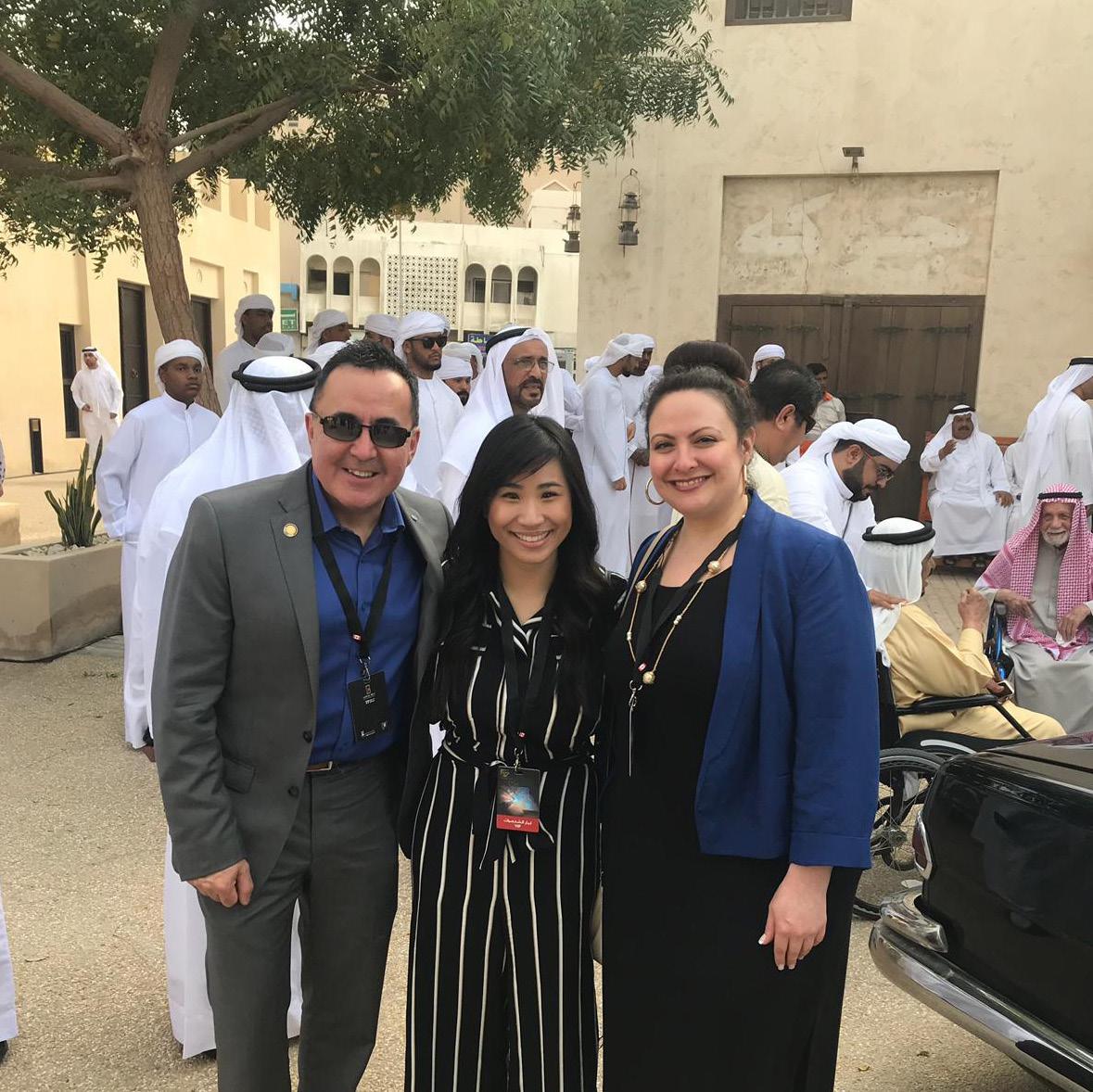
4. ¿Cuáles son los momento especiales, que más te emocionan sobre tu trabajo? Mira, momentos especiales hay varios, pero si te puedo mencionar mi rol como Productor Asociado de la división de festivales y ceremonias de los Juegos Panamericanos de Winnipeg el año 1999. Fueron 15 días maravillosos donde producimos las Ceremonia Inaugural y de clausura, y un festival donde reunimos artistas de grueso calibre de Canada, del caribe y Latinoamérica. Otros momentos especiales han sido mi participación como manager / agente en el Festival Internacional de la Canción de Viña del Mar en Chile. Estuve participando con artistas canadienses durante cuatro ediciones entre el 2011 y el 2015. Tengo el honor de haber ganado la competencia Internacional junto a Sierra Noble (de Winnipeg) el año 2011 y junto a Jeffery Striker (de Regina) el año 2014. El año participe con Marco Castillo, artista de Winnipeg quien represento ese año a Brasil. Fue muy emocionante ganar dos veces en el país donde nací.
4. What are the special moments that excite you the most about your work? Look, there are many special moments, but I can mention my role as Associate Producer of the festivals and ceremonies division of the 1999 Pan American Games in Winnipeg. It was a wonderful 15 days where we produced the Opening and Closing Ceremonies, and a festival where we brought together high caliber artists from Canada, the Caribbean and Latin America. Other special moments have been my participation as manager/agent in the Viña del Mar International Song Festival in Chile. I was participating with Canadian artists for four editions between 2011 and 2015. I have the honor of having won the International competition with Sierra Noble (from Winnipeg) in 2011 and with Jeffery Striker (from Regina) in 2014. That year I participated with Marco Castillo, an artist from Winnipeg who represented Brazil that year. It was very exciting to win twice in the country where I was born.
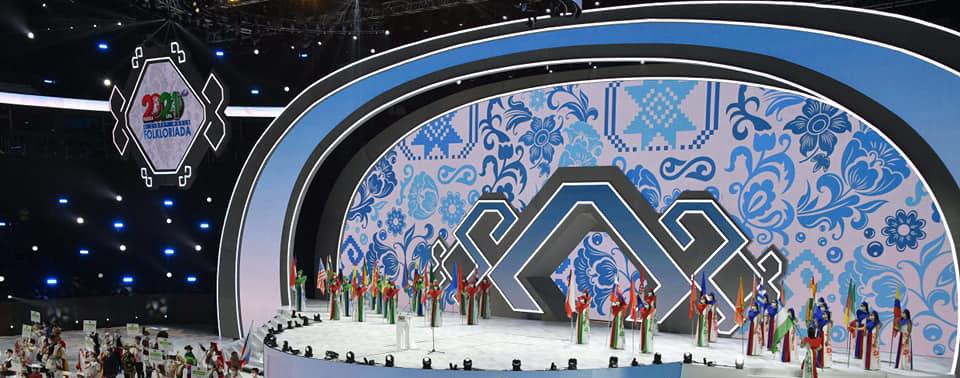
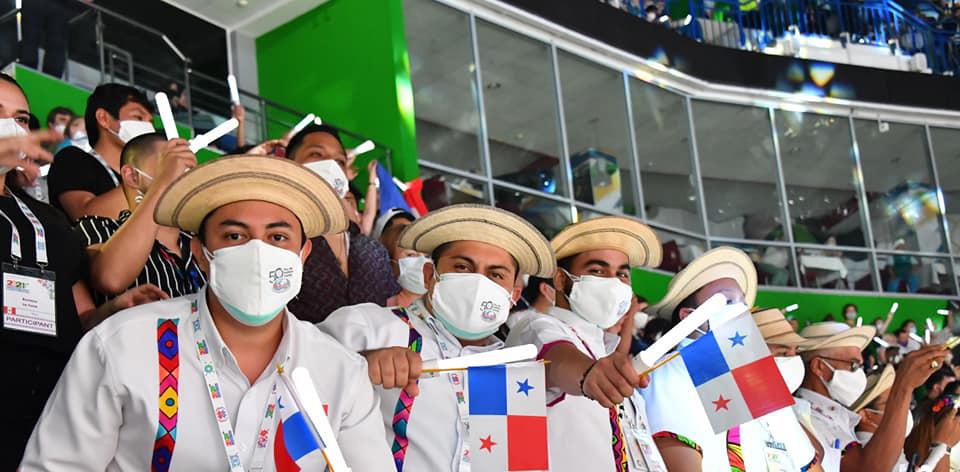
5. ¿Cómo es trabajar durante las restricciones de la pandemia? La pandemia ha sido muy dura con la industria cultural y de producción de eventos. A raíz de eso, muchos festivales a lo largo del mundo han desaparecido o a punto de desaparecer. Felizmente, Folklorama siempre ha contado con una política de ahorro y de austeridad para enfrentar situaciones anormales, así que la pandemia no nos afectó tanto. Sin embargo, tuvimos que reinventarnos y cambiar de giro en términos de producir ahora eventos virtuales. No es lo mismo, sin embargo, nos hemos mantenido ocupados y trabajando con los artistas locales. Ahora, que se han levantado las restricciones en algunos países del mundo, viajo a la Republica de Baskortostán en la Federación Rusa donde se va a realizar la sexta edición de la Folklorama Mundial de CIOFF del 3 al 7 de Julio.
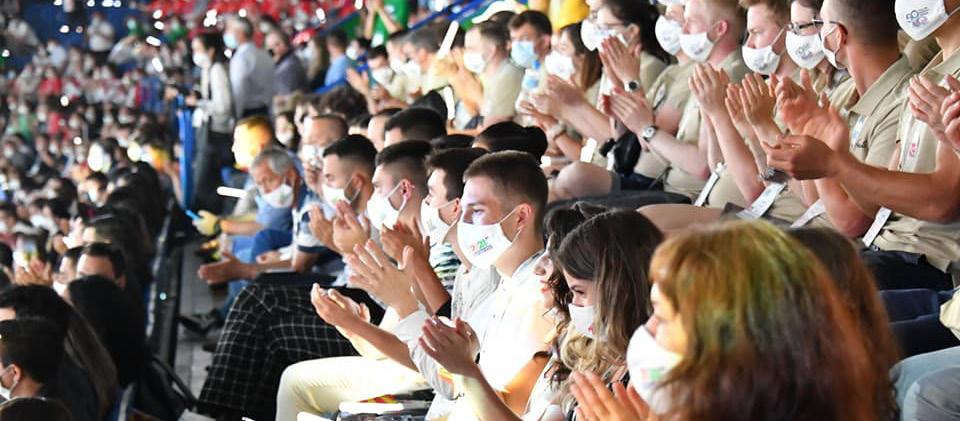
Este evento reunirá alrededor de 2000 artistas provenientes de 50 países. La Folkloriada son las Olimpiadas del Folklore. Yo soy vicepresidente del comité organizador. Junto a las autoridades y comité local hemos trabajado arduamente para velar por la seguridad y salud de todos los participantes, imponiendo rígidos protocolos de salud.
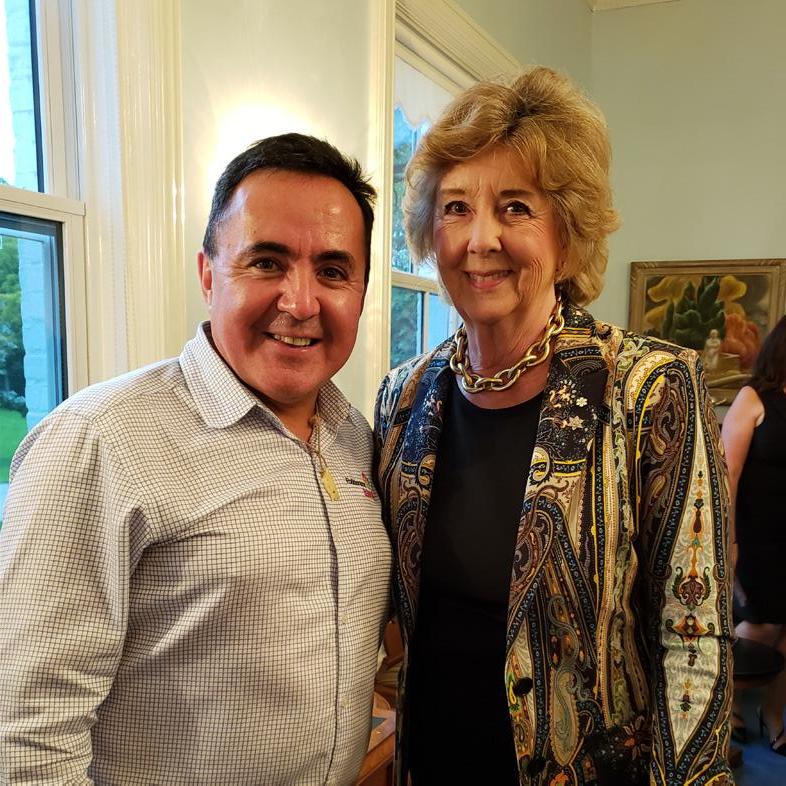
5. What is it like to work during the pandemic restrictions? The pandemic has been very hard on the cultural and event production industry. As a result, many festivals around the world have disappeared or are on the verge of disappearing. Fortunately, Folklorama has always had a policy of savings and austerity to face abnormal situations, so the pandemic did not affect us so much. However, we had to reinvent ourselves and change our focus in terms of producing virtual events now. It’s not the same, however, we have kept busy and working with local artists. Now, that restrictions have been lifted in some countries around the world, I am traveling to the Republic of Bashkortostan in the Russian Federation where the sixth edition of the CIOFF World Folklorama will take place from July 3-7.
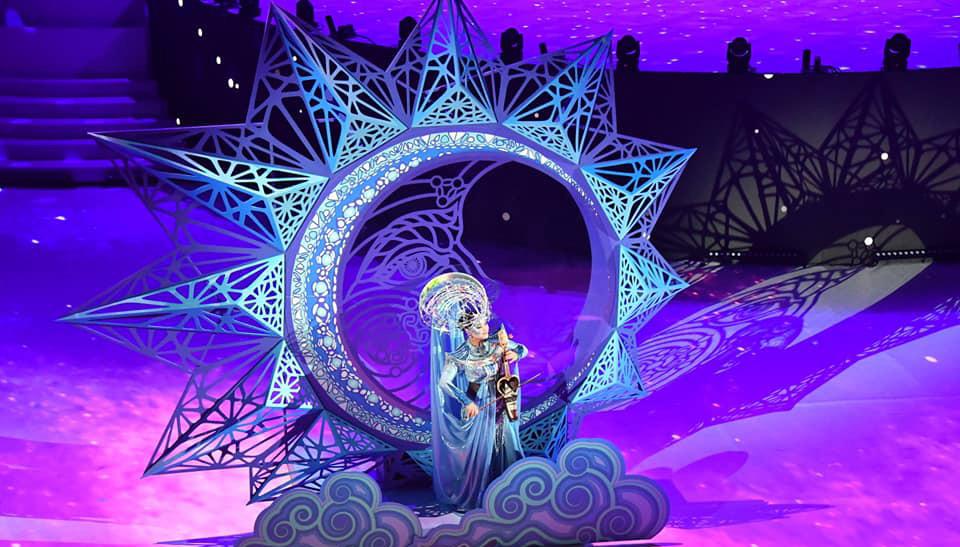
This event will gather about 2000 artists from 50 countries. Folkloriada is the Folklore Olympics. I am vice-president of the organizing committee. Together with the authorities and the local committee we have worked hard to ensure the safety and health of all participants, imposing strict health protocols.
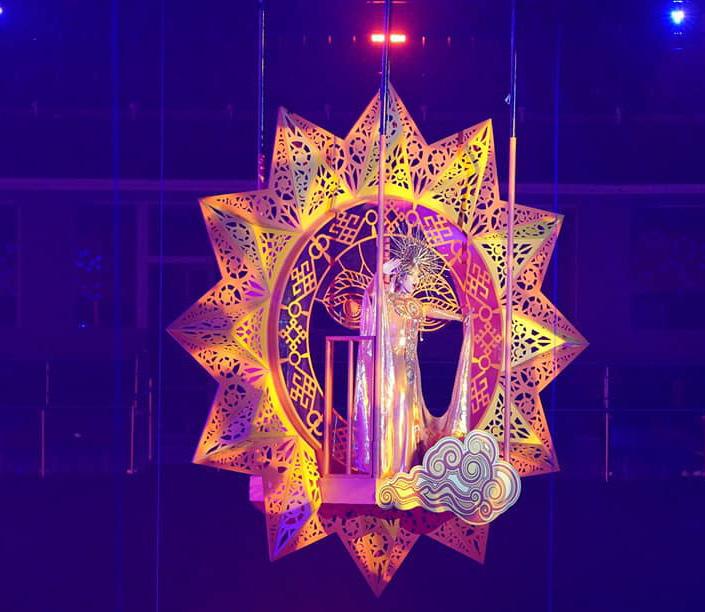
6. Si alguien estuviera interesado en poner en marcha un evento cultural en la ciudad, ¿qué consejo le daría? Que lo piense bien y tener super claro las razones de realizar el evento. Poner en marcha un evento puede ser riesgoso en términos económicos. Hay muchos factores que hay que considerar. Mi recomendación es conformar un buen equipo de trabajo y asesorarse por gente con experiencia.
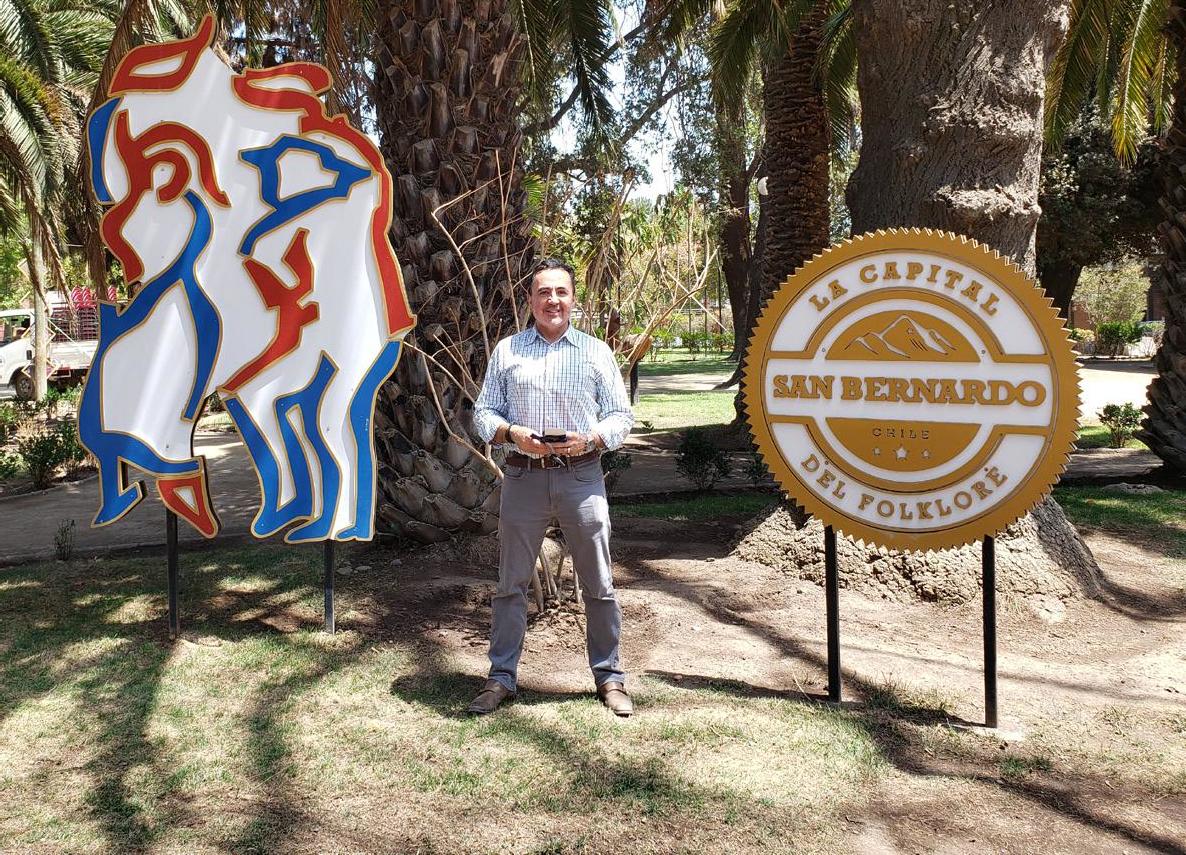
6. If someone was interested in starting a cultural event in the city, what advice would you give them? To think it through and be super clear about the reasons for holding the event. Putting on an event can be risky in economic terms. There are many factors to consider. My recommendation is to put together a good team and get advice from experienced people.
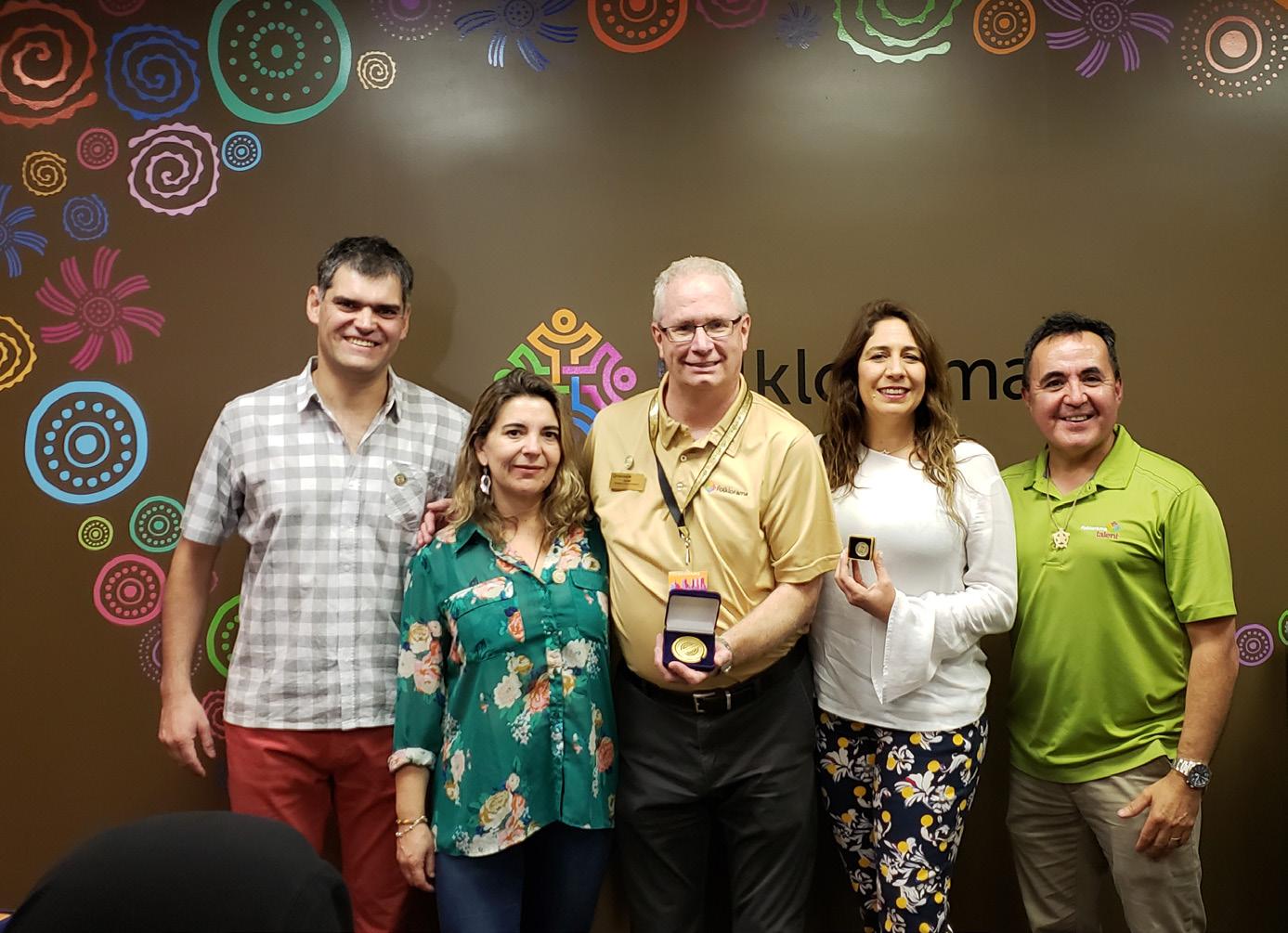
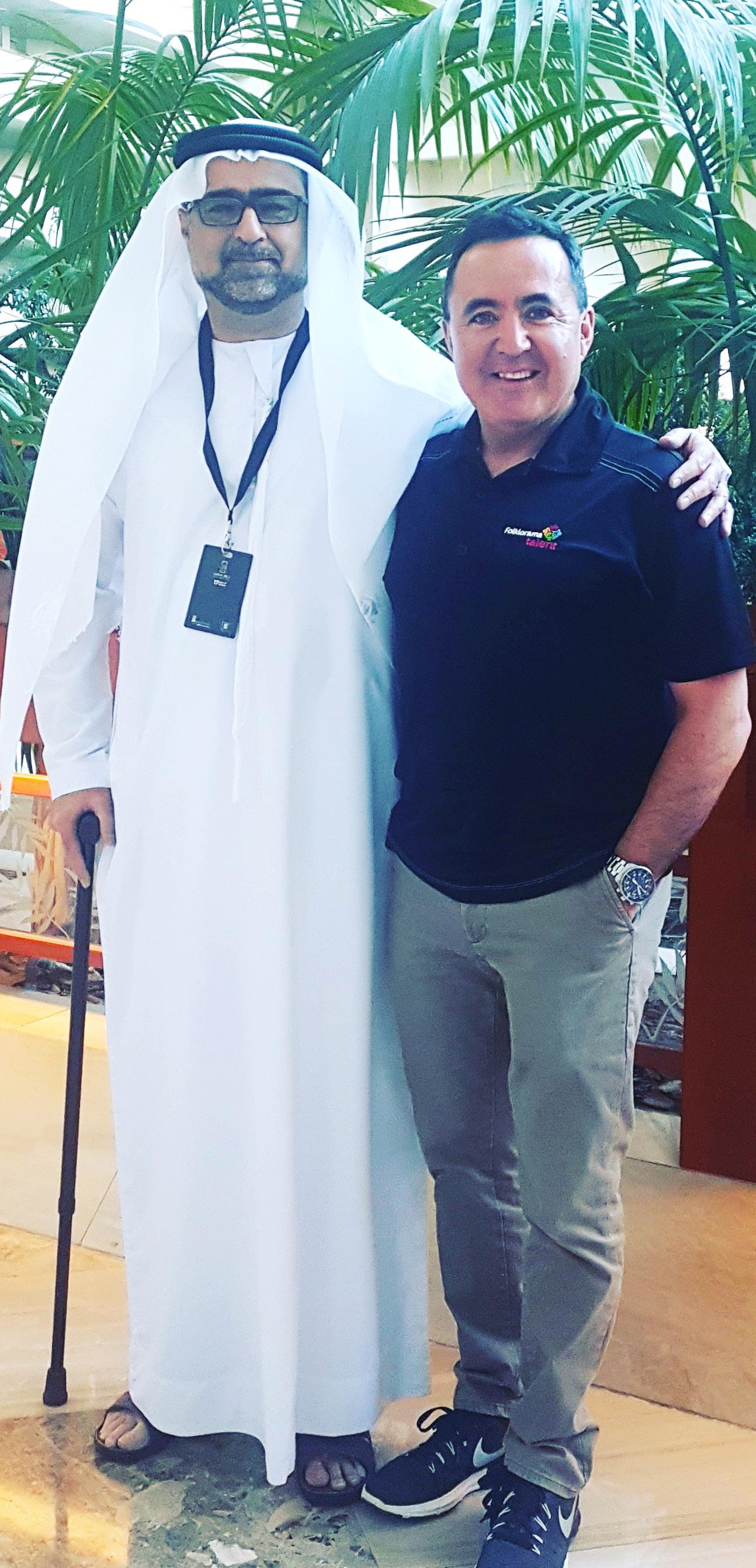
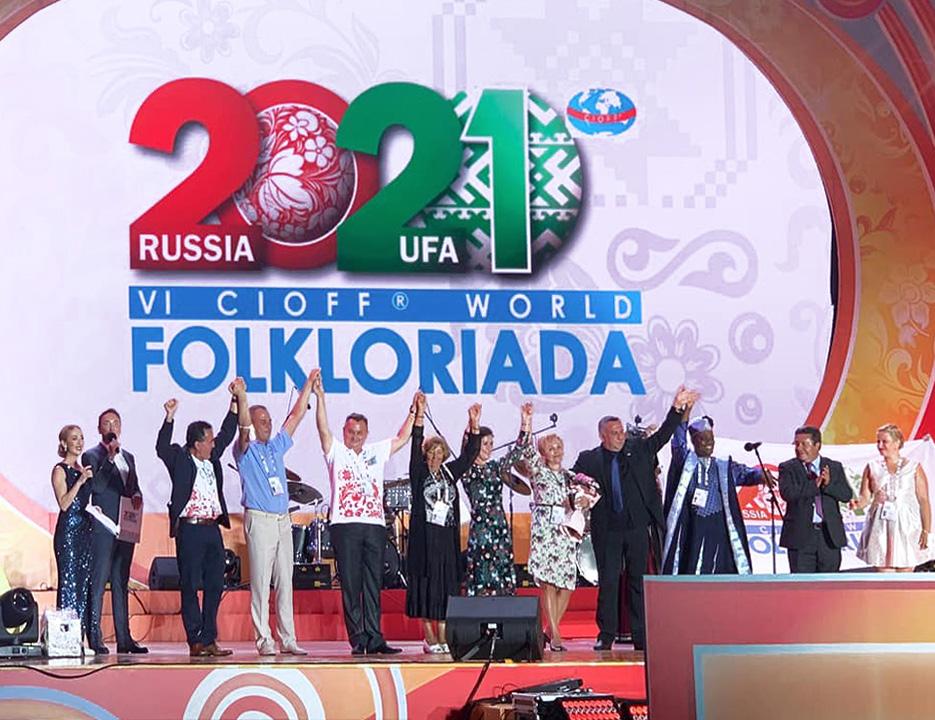
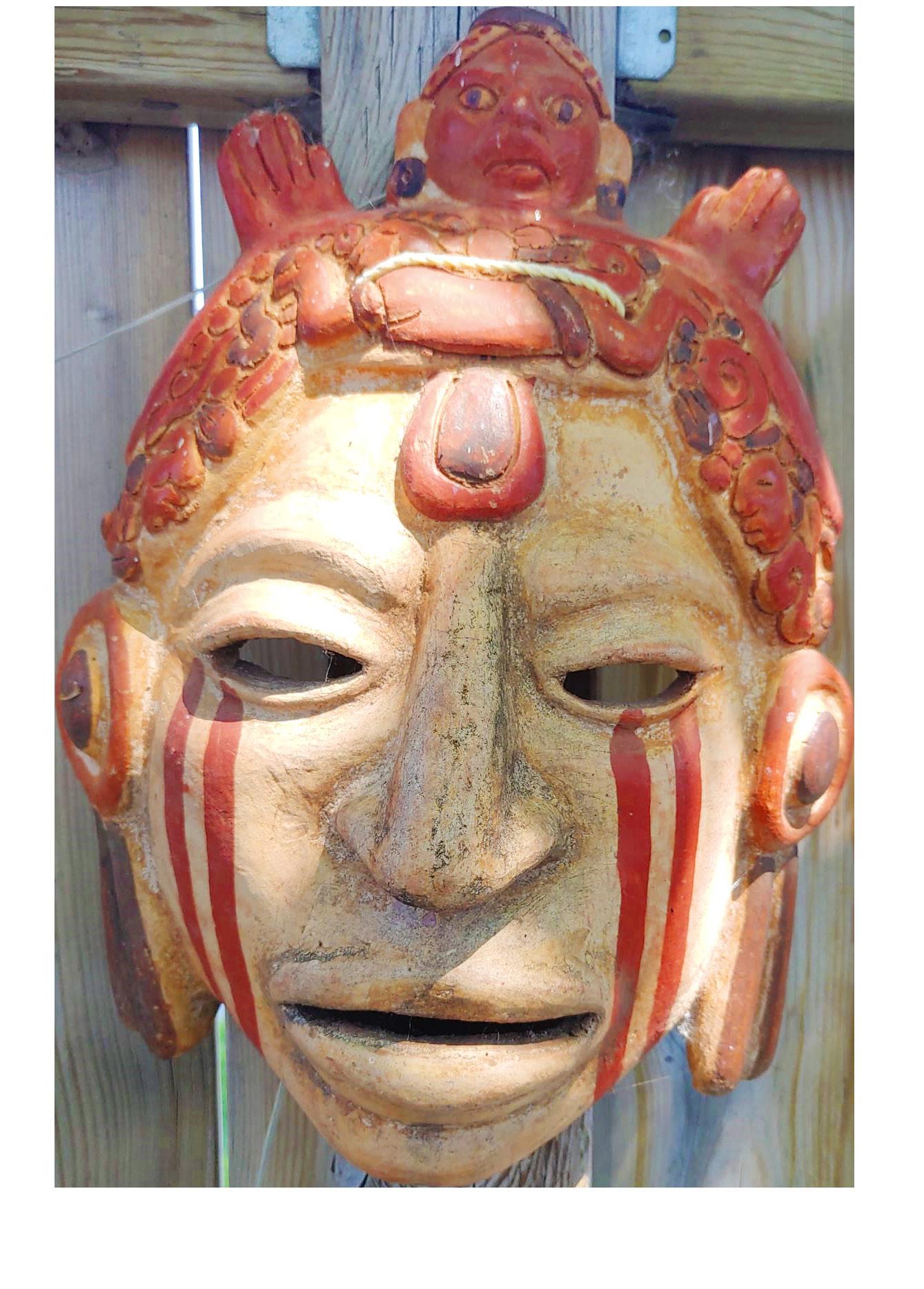
La máscara que represento a El Salvador, fue creada por el artista Salvadoreño-Canadiense, Jorge Figueroa, miembro de Folklorama.
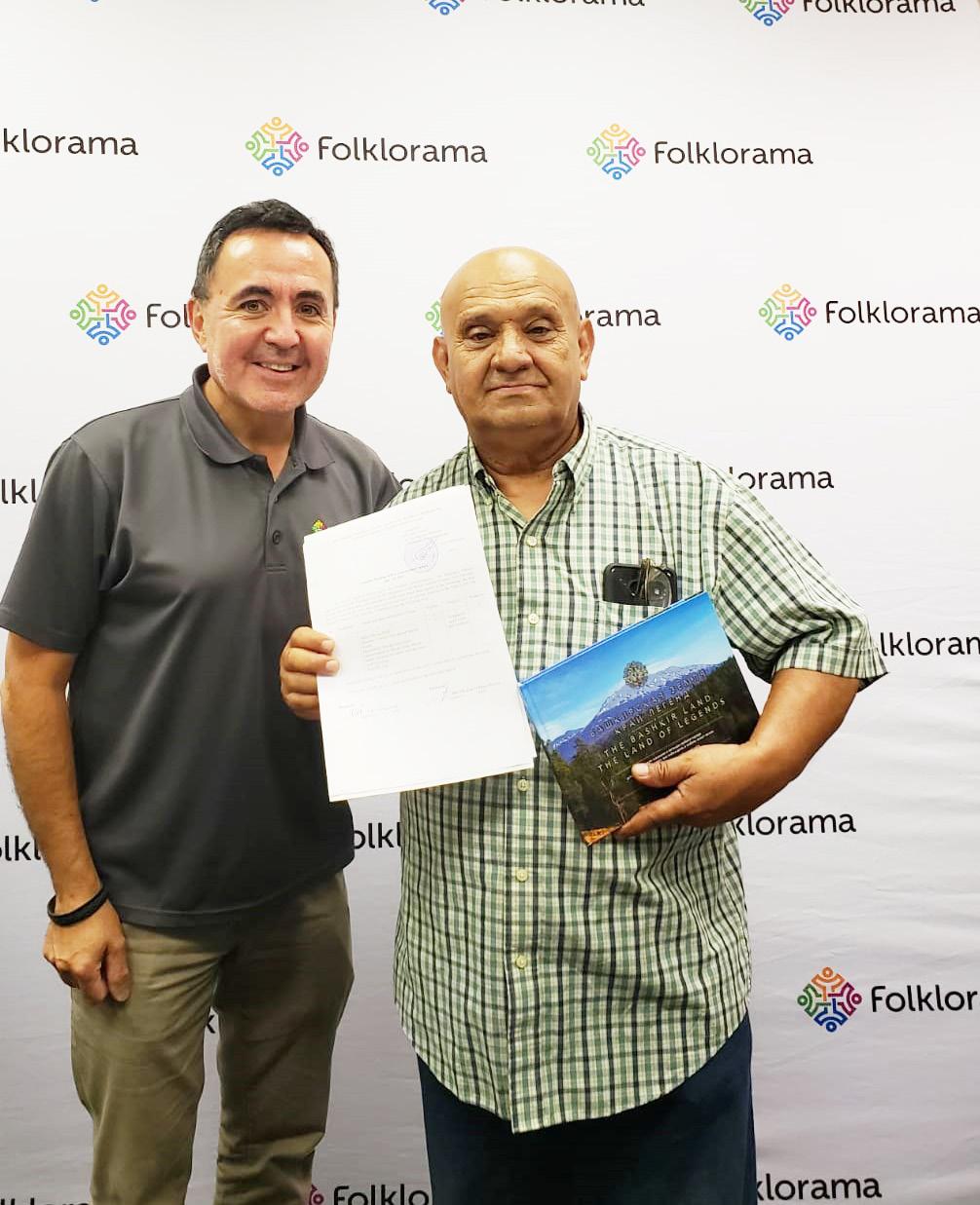
Al terminar la exhibición, la máscara representativa de la cultura Maya fue donada al Museo Nacional de Bashkortostan. En la foto se puede apreciar a Christian Hidalgo-Mazzei, presidente de CIOFF Canada y Director de Folklorama haciendo entrega de la máscara a la Directora del museo.
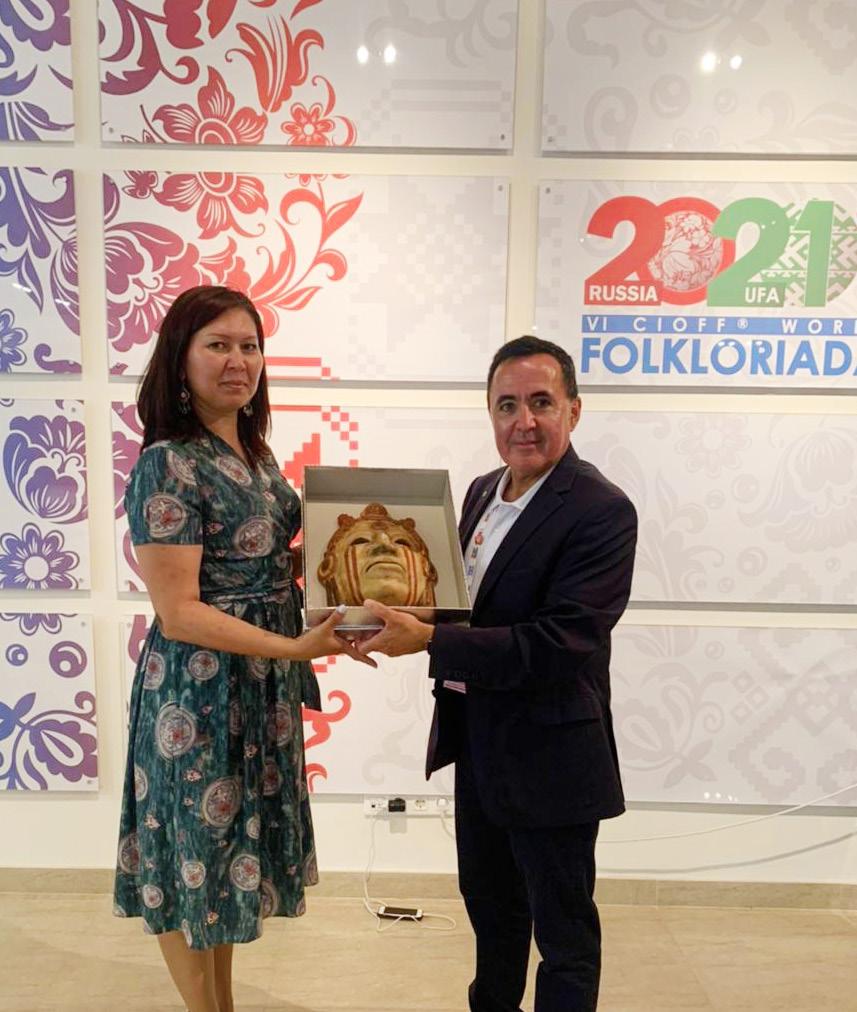
The mask representing El Salvador was created by Salvadoran-Canadian artist Jorge Figueroa, a member of Folklorama. At the end of the exhibition, the mask representing the Mayan culture was donated to the National Museum of Bashkortostan. The photo shows Christian HidalgoMazzei, President of CIOFF Canada and Director of Folklorama presenting the mask to the Director of the museum.
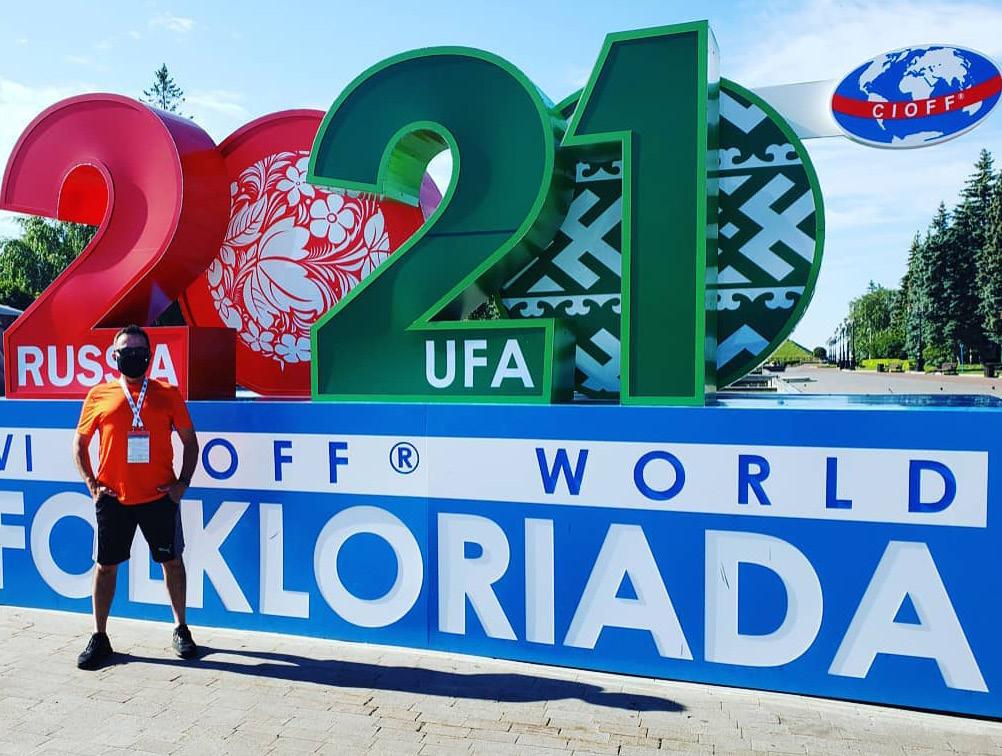
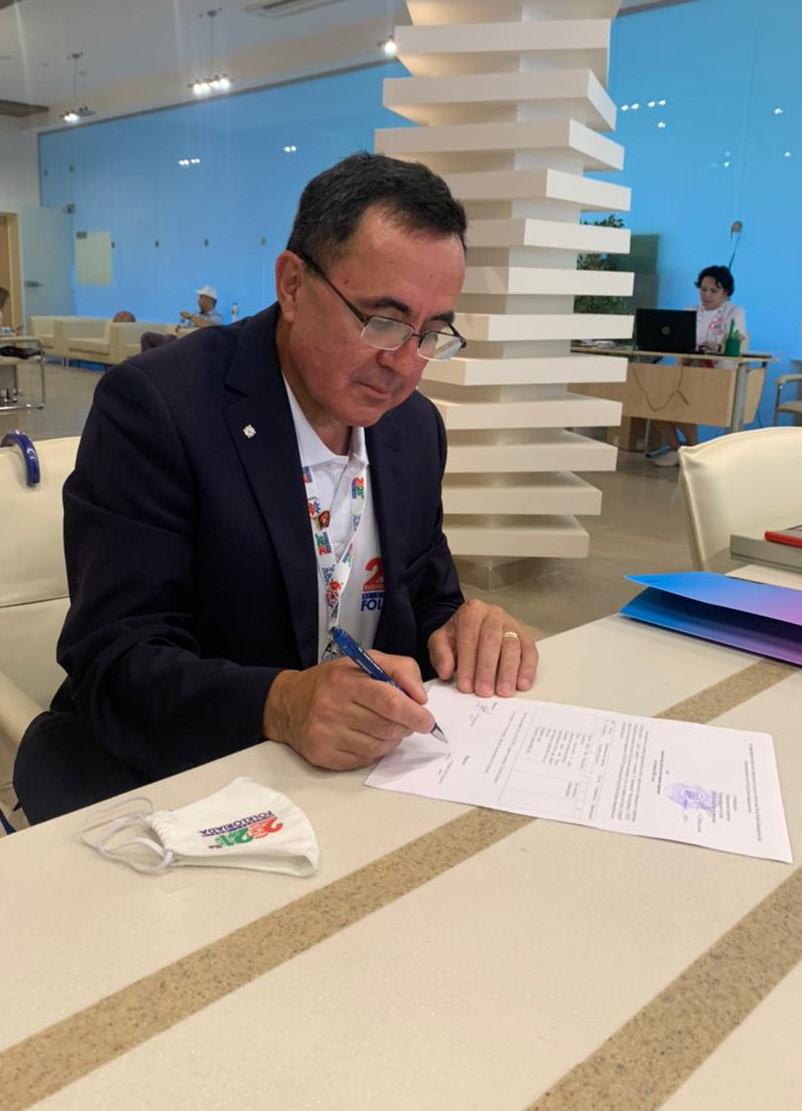
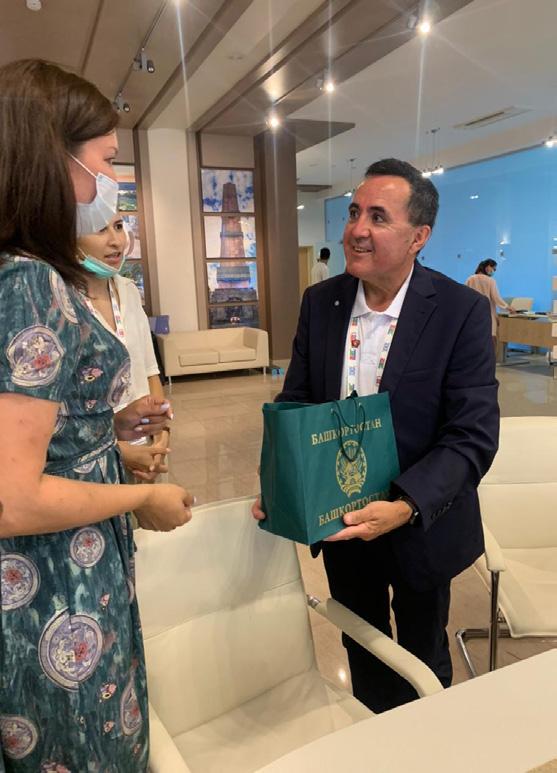
Share the magazine with your friends
COMUNIDAD LATINA EN WINNIPEG | EDICIÓN 06 | Pages 6 - 11










